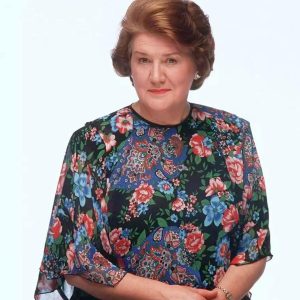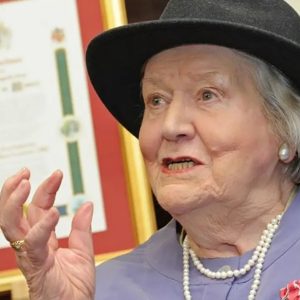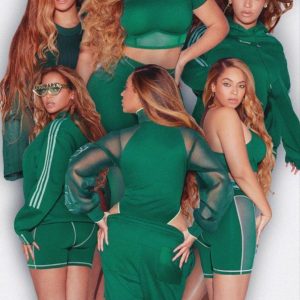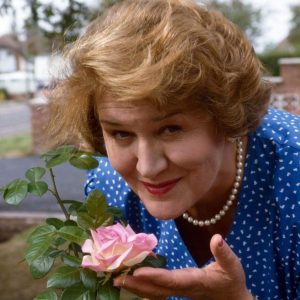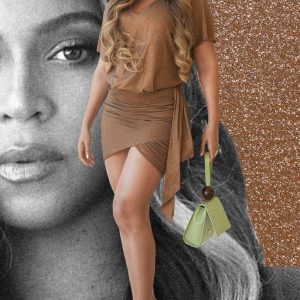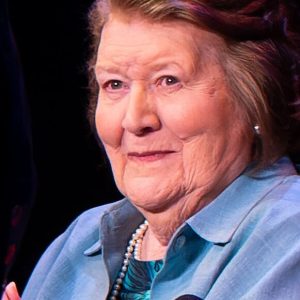“Keeping Up Appearances”: The Unlikely Global Phenomenon That Conquered the World
When one thinks of the BBC’s most iconic exports, a few obvious titles might spring to mind: the globe-trotting antics of Top Gear, the time-traveling wonder of Doctor Who, or the majestic storytelling of Sir David Attenborough’s Planet Earth. But towering quietly above them all is a show far more peculiar in its success—a genteel, pastel-colored sitcom about a woman obsessed with climbing the social ladder.
Keeping Up Appearances, the cult 1990s comedy created by Roy Clarke, has not only endured—it has triumphed. According to data from BBC Worldwide, the show’s first series alone has been purchased an astonishing 992 times by broadcasters around the world, making it the BBC’s most frequently sold title in the last 50 years.
Yes, you read that right. A sitcom about one woman’s desperate, cringe-inducing attempts to project an image of upper-class perfection has beaten every Attenborough documentary, every sci-fi revival, every glossy crime drama. Why? Because, as creator Roy Clarke himself puts it, “everyone knows a Hyacinth.”
The Global Appeal of Britain’s Most Pretentious Neighbor
From Bulgaria to Nigeria, Latvia to Laos, the tale of Hyacinth Bucket (pronounced “Bouquet”, if you please) and her relentless pursuit of social respectability has struck a strangely universal chord. Despite being soaked in distinctly British eccentricities—tea rituals, vicar visits, and floral arrangements—Keeping Up Appearances has achieved what few comedies have: global relatability.
The show’s central character, Hyacinth, played to perfection by Dame Patricia Routledge, is a masterpiece of comic invention. With her high-pitched trill and carefully curated facade of middle-class gentility, she is the embodiment of aspirational delusion. Every episode is a careful choreography of social landmines: unexpected visits from her slovenly family, run-ins with neighbors, and unannounced chaos brought on by her long-suffering husband, Richard (Clive Swift), and her shambolic brother-in-law Onslow (Geoffrey Hughes).
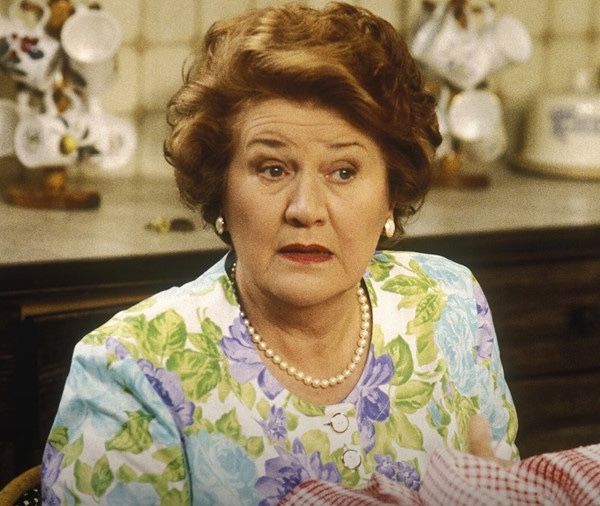
And yet, beneath the show’s slapstick and farce lies a deeper truth—one that transcends culture, language, and time. It’s the universal human need to belong, to be seen, to rise above one’s station. For many, Hyacinth Bucket is not just a figure of ridicule—she’s oddly admirable in her persistence. She is Don Quixote with a Royal Doulton teacup.
Roy Clarke on the Queen of Comedy
Reflecting on the show’s enduring popularity, Roy Clarke offered a characteristically cheeky explanation: “The old girl keeps on raising and ridding the dust. She’s an international phenomenon. Wherever you are, it seems there’s a Hyacinth next door—or just down the road, or in the family. Great fun for half an hour as a spectator. Permanently? I shouldn’t grumble. Bless her—she’s been good to me.”
And good she has been. Routledge’s performance as Hyacinth earned her BAFTA nominations and legions of devoted fans across continents. Meanwhile, the cast around her, including Hughes as the indolent, beer-loving Onslow and Judy Cornwell as the sweet, simple Daisy, rounded out a comic ensemble that managed to be both broad and endearing.
Numbers Don’t Lie: The Show That Outsold Attenborough
According to the BBC’s Showcase distribution data, Keeping Up Appearances outpaced The Life of Mammals (958 purchases), Wild South America (third place), and Wild Africa (fourth), all heavyweights from the BBC’s natural history division. And while more modern blockbusters like Sherlock, Luther, Silent Witness, and Planet Earth may have reached over 200 territories, the key metric here is repeat sales of a single series—and in that race, Hyacinth reigns supreme.
Series One of Doctor Who, for instance, has been sold 629 times, making it the BBC’s most-purchased drama. Meanwhile, Top Gear‘s ninth season tops the factual entertainment category with 282 sales, reaching markets as varied as Iceland, Iran, Albania, and the United States.
But with nearly 1,000 individual sales, Keeping Up Appearances remains an unmatched success, particularly in regions where British culture is viewed through a lens of charm and eccentricity.
The Enduring Power of Classic Television
Paul Dempsey, President of Global Markets for the BBC, celebrated the legacy of shows like Keeping Up Appearances, noting that while modern “event TV” demands cinematic production values and massive budgets, audiences still crave the comfort and humor of classic programming.
“We are extremely proud of our heritage and back catalogue,” Dempsey said. “It’s clear that our current best sellers are high-end dramas like Doctor Who and Sherlock, but it’s equally important to celebrate the timeless appeal of classics like Keeping Up Appearances.”
Indeed, the sitcom’s enduring popularity is a testament to the power of good writing, relatable characters, and the ability to laugh at the absurdity of life’s little pretensions.
From Comedy to Iconography
In a strange twist of fate, Hyacinth Bucket has become more than just a fictional character—she’s become an icon. In some corners of the world, Onslow and Daisy have even become cult symbols in LGBTQ+ communities. Their quirky dynamic, their rejection of convention, and their stylized “anti-glamour” aesthetic have made them popular choices at fancy dress parties and themed events.
Judy Cornwell, who played Daisy, once recalled visiting Miami and being greeted like a rockstar. “We were huge gay icons in the States,” she said. “Apparently, it was very affordable to dress up as Onslow and Daisy!”
A Legacy That Refuses to Fade
It’s been decades since the last new episode aired, yet Keeping Up Appearances is still finding new audiences—and new life. In the streaming age, where viewers binge-watch dark thrillers and post-apocalyptic epics, the gentle humor of Hyacinth Bucket offers a welcome respite.
It’s the kind of show that doesn’t just entertain—it becomes a part of family tradition. Passed down through generations, quoted at dinner tables, and forever replayed on Sunday afternoons.
Hyacinth would undoubtedly be proud. Or, rather, “so thrilled to be appreciated globally, dear!”
In an era dominated by CGI spectacles and international thrillers, it is Hyacinth’s simple, desperate cry for social recognition that echoes loudest across the globe. And that, more than any award or rating, may be her greatest triumph.
